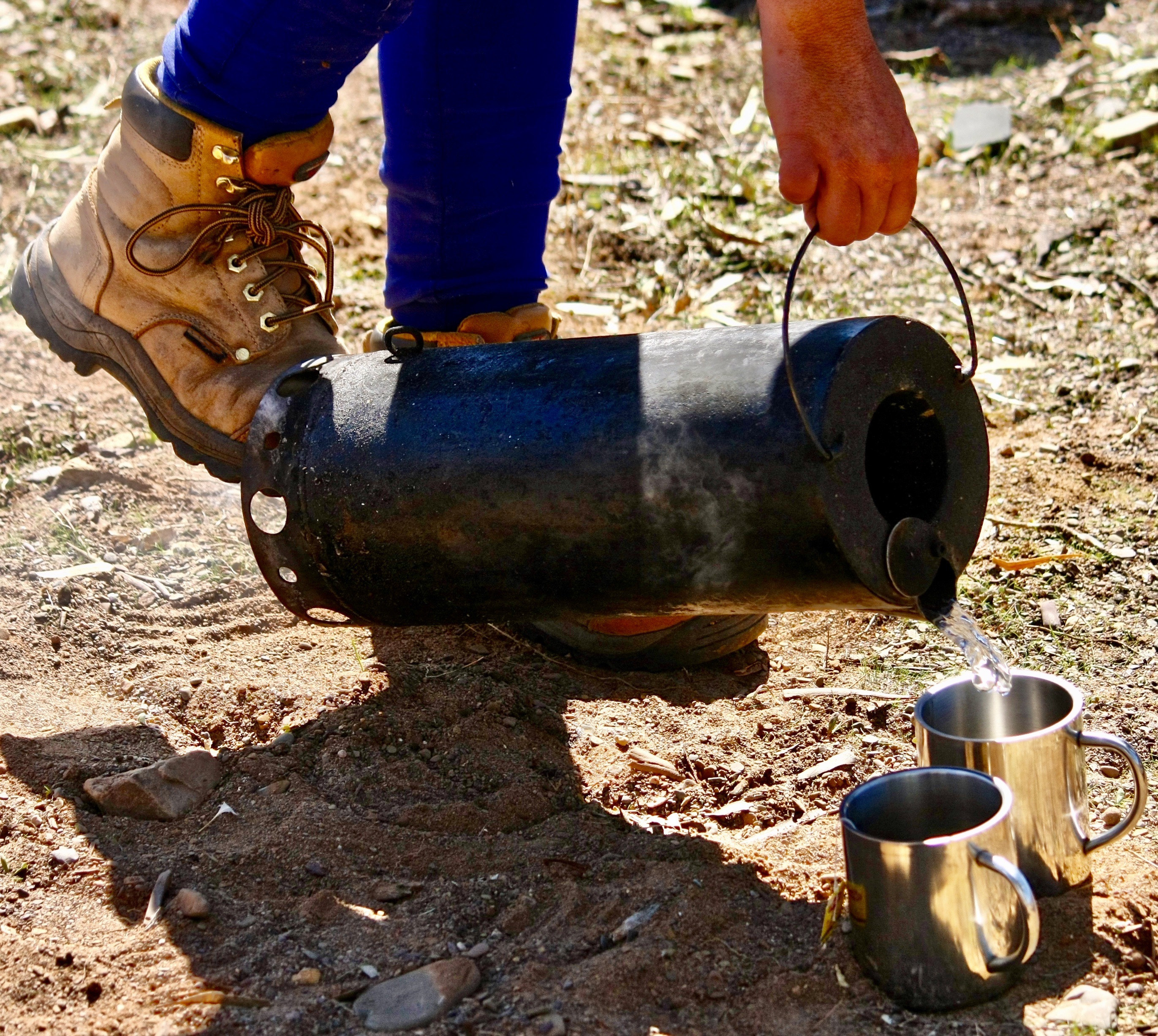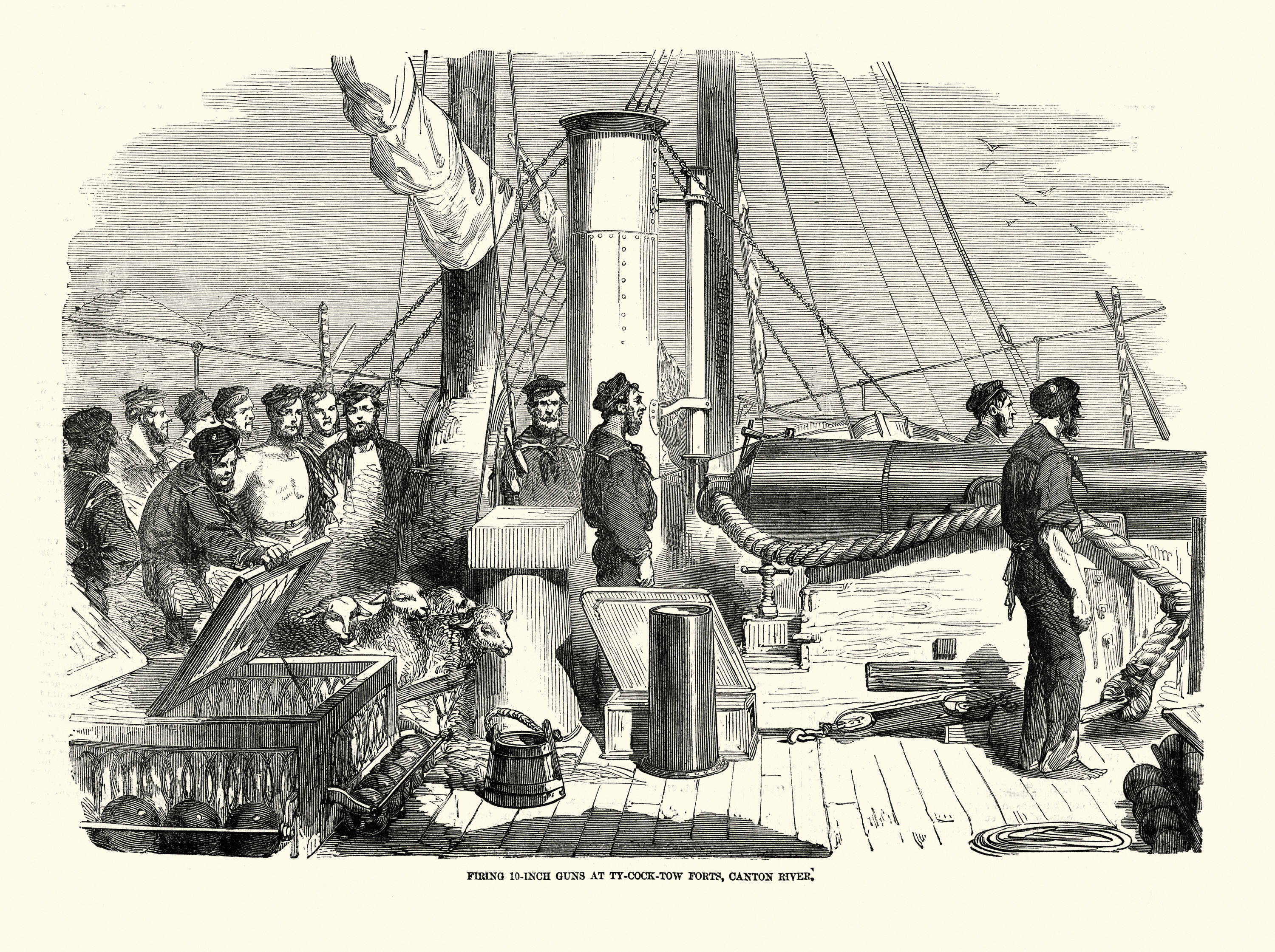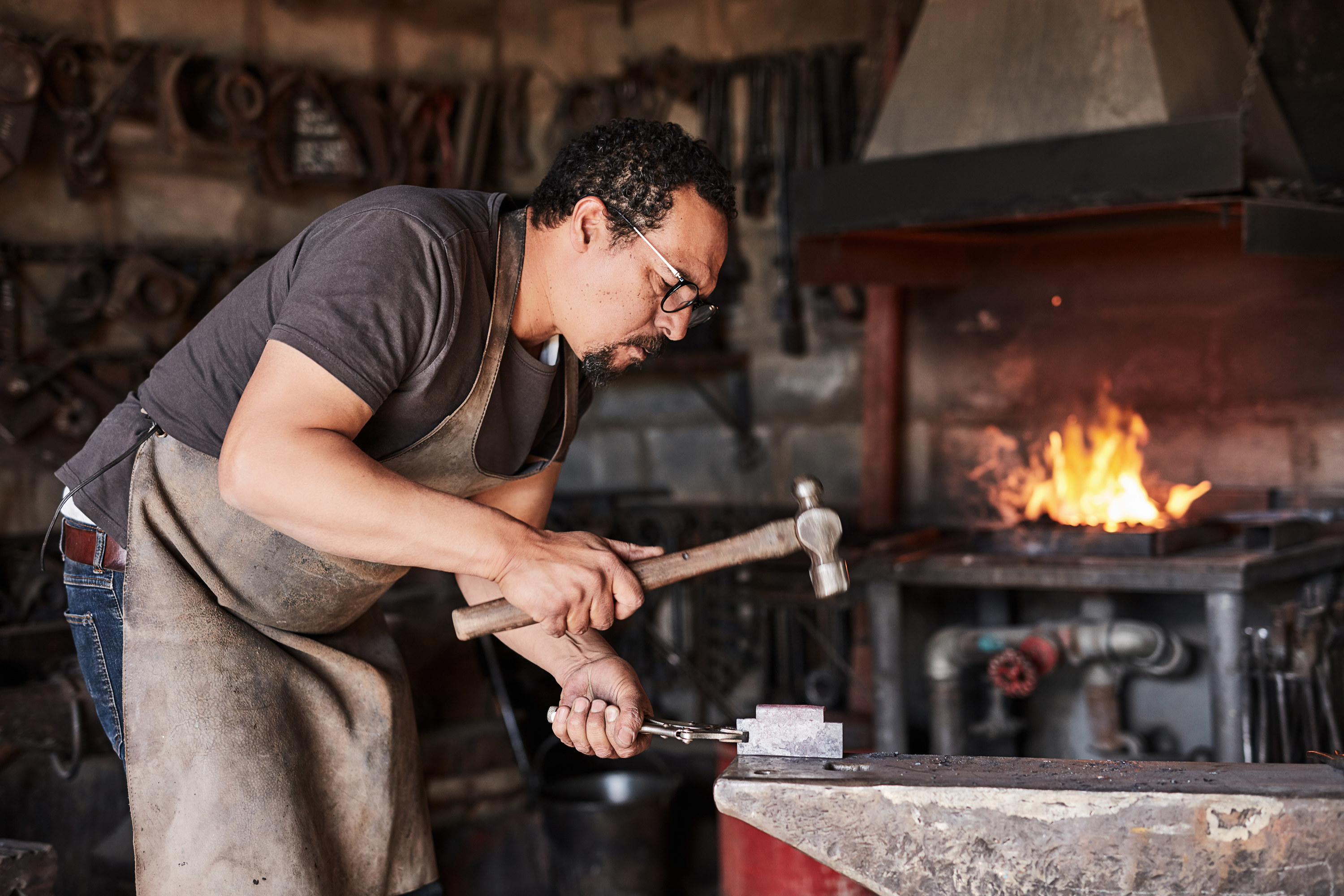Many of us have had our fair share of undesirable jobs, but history has us feeling pretty thankful for what's on offer these days.
From the unpleasant to the outright bizarre, let's take a trip down memory lane to see all the jobs we've managed to dodge in the 21st century...
1. Knocker-ups, or knocker-uppers
View this video on YouTube
Ever wondered how people got anywhere on time before alarm clocks existed? Well, I'll tell you how. They hired a knocker-up!
Commonplace in Britain and Ireland, knocker-ups carried a big long stick and would wake up their client by knocking at their bedroom window. The standard implement was a stick, but some knocker-ups used soft hammers, rattles, or even pea shooters.
They did at one point ring doorbells, but soon realized that the shrill of a bell could also wake the neighbors and essentially provide a free wake-up call to them as well. From there, the sticks were busted out to gently wake only the paying client! (Source: BBC News)
2. Pinsetter
View this video on YouTube
Before the fancy mechanical contraptions we have in our bowling alleys today, people were hired as pinsetters. They had to manually reset bowling pins to the correct position, clear all the fallen ones, and run back to the players with the bowling ball they'd just lobbed down the lane at them! (Source: Hart Cluett Museum)
With the invention of mechanical pinsetters, the role has been pretty much made extinct, but surprisingly, manual pinsetters are still employed around the world.
3. Lector
View this video on YouTube
These days, we can whack on Spotify while we work to keep us entertained through the drier tasks, but what about way back when?
Well, in many factories, they'd pay a lector, who would stand on a platform on the workhouse floor and loudly read news or literature to keep the workers entertained. The workers enjoyed the lectors' service so much that if their bosses stopped hiring one, they'd often band together to pool some cash and hire one of their own.
There are still some lectors working in this way around the world, particularly in Cuban cigar factories. In fact, some Cuban immigrants brought the lector role to the US when they moved there in the 1800s, introducing the tradition to Tampa and Key West. (Source: A Noise Within)
4. Town crier
View this video on YouTube
Going way back to around medieval times in England, the town crier would ring a bell and proclaim "oyez, oyez, oyez!" which roughly translates from French as "hear ye."
The crier would inform the townspeople, many of whom could not read, of the latest news and information, before attaching the message to the door post of a local inn — hence why newspapers often feature the word "post"!
Town criers had a range of other duties outside of shouting out the news to the locals; they also had to patrol the streets after nightfall, arrest troublemakers and haul them off to the stocks, and ensure people had put out fires after the curfew bell, as well as to read out why a person was being hanged and cut them down after the deed was done. (Source: Historic UK)
5. Ice cutters
View this video on YouTube
Nowadays, we can buy bags of ice, make ice cubes in our home freezers, or even get fresh ice at the push of a button via a smart fridge. Hundreds of years ago, though, ice was not so easy to come by.
An ice cutter, or "le coupeur de glace," would go out on to frozen rivers, lakes, and ponds and collect ice. Most people relied on ice cutters to collect ice for them and deliver regularly, as there was no way to keep the ice reliably cold without the electric freezers we're used to today.
When the ice was around a foot deep, ice cutters would use a horse-drawn plow to clear the snow from the ice, then score the ice into sections and use hand-saws to cut it into pieces before placing it on a carriage to be delivered.
It was a pretty dangerous job — ice cutters could fall through the ice and get trapped, as could the horses.
6. Lamplighter
View this video on YouTube
We're very much used to electric streetlights these days, but keeping the streets bright at night used to be powered by candles or gas.
Lamplighters had to light lamps (as the name would suggest!) but also extinguish them in the morning. Dependent on where in the world the lamplighter lived, he could have a leisurely stroll around the town lighting lamps, or he could be charging around frantically trying to ensure they were all lit in time. For example, there were tens of thousands of lamps in London, England alone, but in contrast, there were under 1,000 in Lowell, Massachusetts, in the US.
The job was considered to be prestigious, and was often passed down from father to son, though sometimes, the duty was performed by women, too. It was a relatively safe job, but one risk was being blown off their ladders by a gas buildup in the light chamber.
Lamplighters also made money on the side by capturing rare bugs attracted to the light in the lamps and selling them to insect collectors.
As you can imagine, when electricity and light bulbs became commonplace, the career of a lamplighter was snuffed out. (Source: HowStuffWorks)
7. Groom of the stool
View this video on YouTube
Right, strap in, because this is a real ride.
The groom of the stool was a male servant created during the reign of Henry VII to monitor and assist the king with his bowel motions.
The groom of the stool would help the king undress for each toilet visit, monitor his diet and mealtimes, report to the royal doctors, and generally organize his day around the king's toilet time. He'd also carry the king's portable toilet and guard his jewels whilst the king went about his business on the porcelain throne.
It sounds like a pretty crappy job (literally!), but it was actually highly sought after. Often given to the sons of noblemen or the gentry, the groom had unfettered access to not just the king's bottom, but also his ear. He could influence the king's decisions, give feedback on other people (who went out of their way to be seen favorably by the groom), and was also the first in line to be recruited by opposing political factions, who knew the power he had over the king.
As well as the power and influence the groom role offered, the king and his groom of the stool would often become very close friends due to all the one-on-one time spent together, and the groom would receive glamorous royal hand-me-downs as a perk of the job. (Source: Historic UK)
8. Gong farmer
View this video on YouTube
We didn't always have indoor toilets with flushes that neatly transport your lovely donations off far away. Before modern plumbing, people would relieve themselves over a raised board over a cesspit, and after a time, that cesspit would need emptying.
Enter the gong farmer. Why "gong"? Gong came from a word that means "going," and the farmers had to harvest months or even years of people's "goings." They would jump down into the cesspits where the accumulated...ahem, materials would often come up to their waists. They'd excavate the contents of these cesspits and take it to conventional farmers on a cart so it could be used as fertilizer.
Small boys were often given this lovely role due to their ease when it came to jumping down and being hauled back up from the cesspits.
Gong farmers often earned in one day what others earned in a week, but there weren't many other perks of the job. They were limited in where they were allowed to live and only allowed to work at night so citizens didn't see or smell them. Bathing wasn't common back in the Middle Ages, so as you can imagine, they absolutely reeked!
On top of being sequestered away from society, gong farmers could also run into poisonous gases from the decaying poop, and could actually drown in the stuff when they dropped down into it from above. What a way to go! (Source: Non-Fiction Minute)
9. Tosher or mudlarks
View this video on YouTube
Whilst we're talking crap, a tosher was another role that couldn't avoid the stuff.
Common during the Victorian era, a tosher used to prowl the sewers looking for "tosh," otherwise known as copper, from boats. They'd also pick out anything else of value that they could find, such as jewelry.
Mudlarks scavenged in mud, and generally found coal, wood, or rope, so didn't make quite as much money as a tosher. (Source: Geri Walton)
10. Faker
View this video on YouTube
We can get color photos at the tap of a touchscreen these days, but way back when, it was amazing to even get a black-and-white photo.
Before the inception of color photography, a faker would colorize photos by hand. As you can imagine, the job was mostly made redundant as cameras progressed, but there are still some in work today who colorize old photos to breathe fresh life into historical images. (Source: Forbes)
11. Billy boy

12. Flatulists
View this video on YouTube
Even hundreds of years ago, letting out a cheeky fart would bring a giggle to many. Because of this, you could legitimately make a career as a flatulist and earn your keep by farting in front of people!
A famous example would be Roland the Farter — what a name to be remembered by, eh? He often performed in the courts of royal families and nobility, and was paid handsomely in cash or even property.
He was so well regarded for his timely farting abilities that King Henry II even gave him his own manor house and at least 30 acres of land in Suffolk, England! (Source: History Hustle)
(Watch the video above to see how funny Brits still find farting in public.)
13. Leech collector

14. Powder monkeys

15. Whipping boy
View this video on YouTube
Now, this one is messed up. A whipping boy was a child brought up with a prince or young king, and when the young royal was naughty, the whipping boy would be forced to take the punishment for him.
Why? Well, royals were protected by "divine rights" or "God's mandate," which said that monarchs were pre-destined and chosen by God to be king. As a result, laying hands on a royal was an extreme offense.
By bringing the whipping boy and the royal up together as friends, the idea was that seeing the whipping boy in pain would be a deterrent for his royal counterpart. Messed up, right? (Source: Ancient Origins)
16. Lungs

17. Herb strewer

18. Crossing sweeper
19. Vomit collectors













